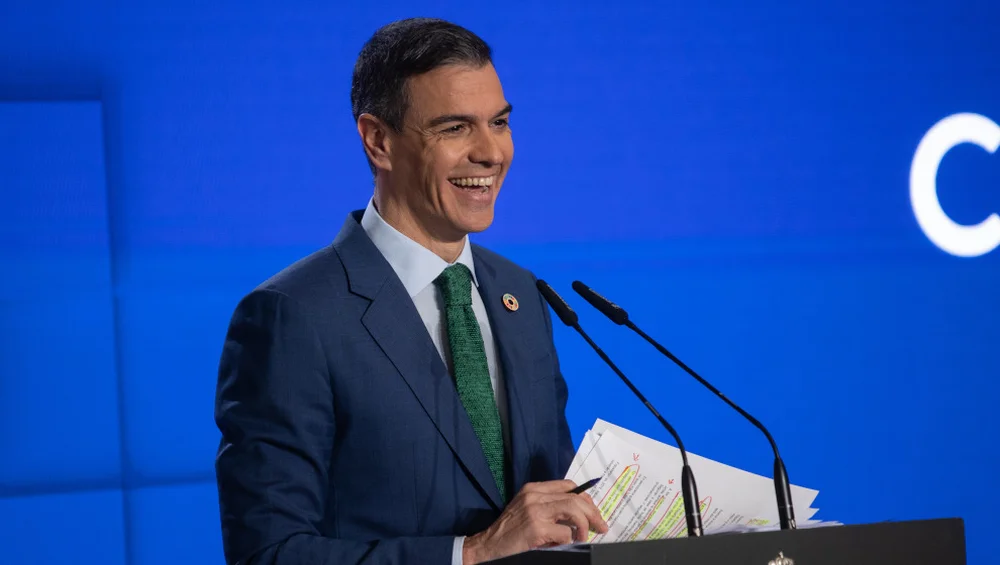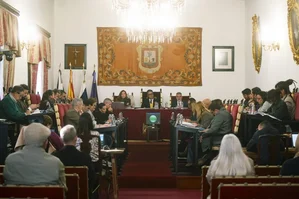Spanish Government Faces Setback as Congress Rejects Omnibus Decree, Impacting Pensions and Transport Subsidies

In a significant political setback, the Spanish government, led by Prime Minister Pedro Sánchez, saw its omnibus decree rejected by Congress on January 22, 2025. This decree was crucial as it included several key measures, most notably a 2.8% increase in pensions for 2025 and the extension of public transport subsidies.
Rejection and Its Consequences
The decree was voted down by 177 votes to 171, with one abstention, primarily due to the opposition from the pro-independence party Junts and the conservative People's Party (PP). This rejection has immediate implications for over 12 million pensioners who were expecting the pension increase, which was aligned with the average inflation rate of the past 12 months.
Political Fallout
Junts spokesperson Míriam Nogueras criticized the Socialist-led government for not fulfilling previous commitments and for approving decrees without prior negotiations with other parties. Nogueras emphasized that Junts would not support any decree that mixed beneficial measures with those that were detrimental to the public, urging the government to issue a new decree focusing solely on pension increases and transport subsidies[1].
The PP described the government's legislation as a "trick decree" and promised to bring an alternative initiative to Congress to protect pensioners. Presidency Minister Félix Bolaños strongly criticized the PP and Junts, stating that the rejection would directly affect pensioners and public transport users, who would see increased ticket prices and reduced pension benefits[1].
Impact on Pensions
The rejected decree included a 2.8% increase in contributory pensions, which is part of a broader set of changes to the Spanish pension system in 2025. Despite the rejection, the government is committed to finding a way to implement this increase. The minimum retirement pension for single-person households was set to rise to 12,241.6 euros per year, up from 11,552.8 euros in 2024. For those with a dependent spouse, the minimum pension was to increase by 9.1%[2].
Public Transport Subsidies
The decree also aimed to maintain and expand subsidies for public transport, including free travel for children and discounts for young people and other groups. However, with the rejection, public transport prices have already begun to rise in some areas. For instance, Barcelona's Metropolitan Transport Authority announced that new higher fares for subsidized tickets would come into effect on February 10, 2025[5].
Future Steps
Prime Minister Pedro Sánchez has called on other parties to support a new decree that would include only the measures on pensions and transport subsidies. The government is exploring various options to ensure these measures are implemented, although the exact timeline and method are yet to be decided. Sánchez appealed to the "responsibility, common sense, and social empathy" of the opposing parties to reconsider their position and support the new decree[5].
Broader Context
The rejection of the omnibus decree highlights the ongoing challenges faced by the Spanish government in managing its pension system. Spain's pension system is under significant pressure, with spending on contributory pensions reaching €12.1 billion in November 2024. The system is undergoing reforms, including an increase in the retirement age and changes in contribution requirements, aimed at ensuring its long-term sustainability[2][4].
As the Spanish government navigates this political landscape, expats and residents alike will be closely watching the developments, especially those who are or will be beneficiaries of the pension system and public transport subsidies. The coming weeks will be crucial in determining how these essential measures will be reinstated and implemented.
Related Stories

Municipalities in Spain Transfer Contracting Competencies to Regional Government
In a bid to enhance efficiency, Spanish municipalities are transferring public contracting competencies to regional governments, aligning with the Digital Spain 2025 agenda for streamlined processes.

Defensor del Pueblo Initiates Investigation into YouTube Channel Complaint by Unidos x Laredo
Spain's Ombudsman investigates a complaint by Unidos x Laredo against a YouTube channel, highlighting the role of the Defensor del Pueblo in protecting rights.

La Laguna City Council Approves €226 Million Budget for 2025
La Laguna City Council approves a €226 million budget for 2025, focusing on infrastructure, social programs, and cultural events to enhance city life.

Free Parking Proposal for Residents in Specific Zones Gains Traction in Spain
Spain's Izquierda Unida proposes free parking for residents in specific zones, aiming to ease urban living costs and align with EU's sustainable mobility goals.

Municipal Spending Sparks Controversy in Gran Canaria
Gran Canaria's San Bartolomé de Tirajana faces backlash over hefty spending on new buildings for municipal services, sparking calls for transparency.